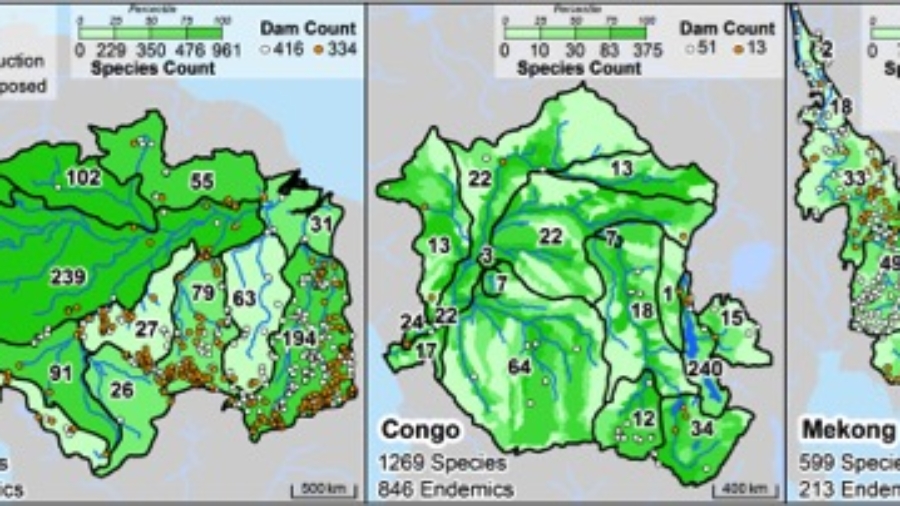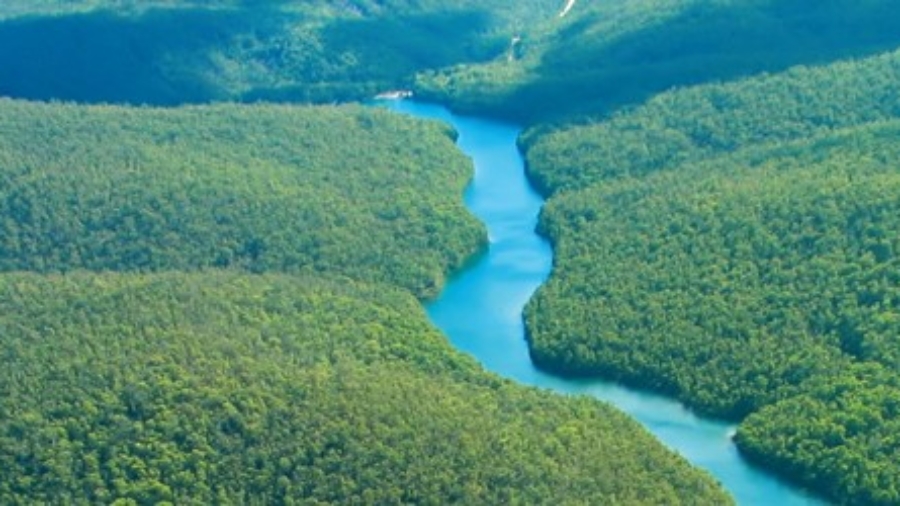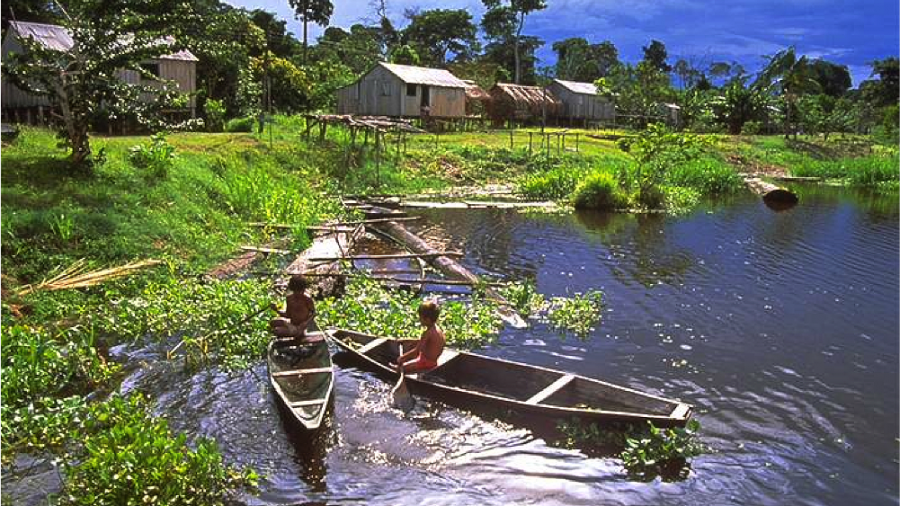A highly qualified and motivated candidate is sought to develop a PhD study on the broad topic of fish and fisheries ecology, genetics, and conservation in the Jurua River in the Brazilian Amazon…
Balancing hydropower and biodiversity in the Amazon, Congo, and Mekong
Advocates of huge hydroelectric dam projects on the Amazon, Congo, and Mekong rivers often overestimate economic benefits and underestimate far-reaching effects on biodiversity…
Large-scale degradation of Amazonian freshwater ecosystems
Hydrological connectivity regulates the structure and function of Amazonian freshwater ecosystems and the provisioning of services that sustain local populations. This hydrological connectivity of Amazonian freshwater ecosystems is increasingly disrupted by construction of dams, mining, land-cover changes, and global climate change. This review analyzes these drivers of degradation; evaluates their impacts on hydrological connectivity; and identifies policy deficiencies that hinder freshwater ecosystem protection.
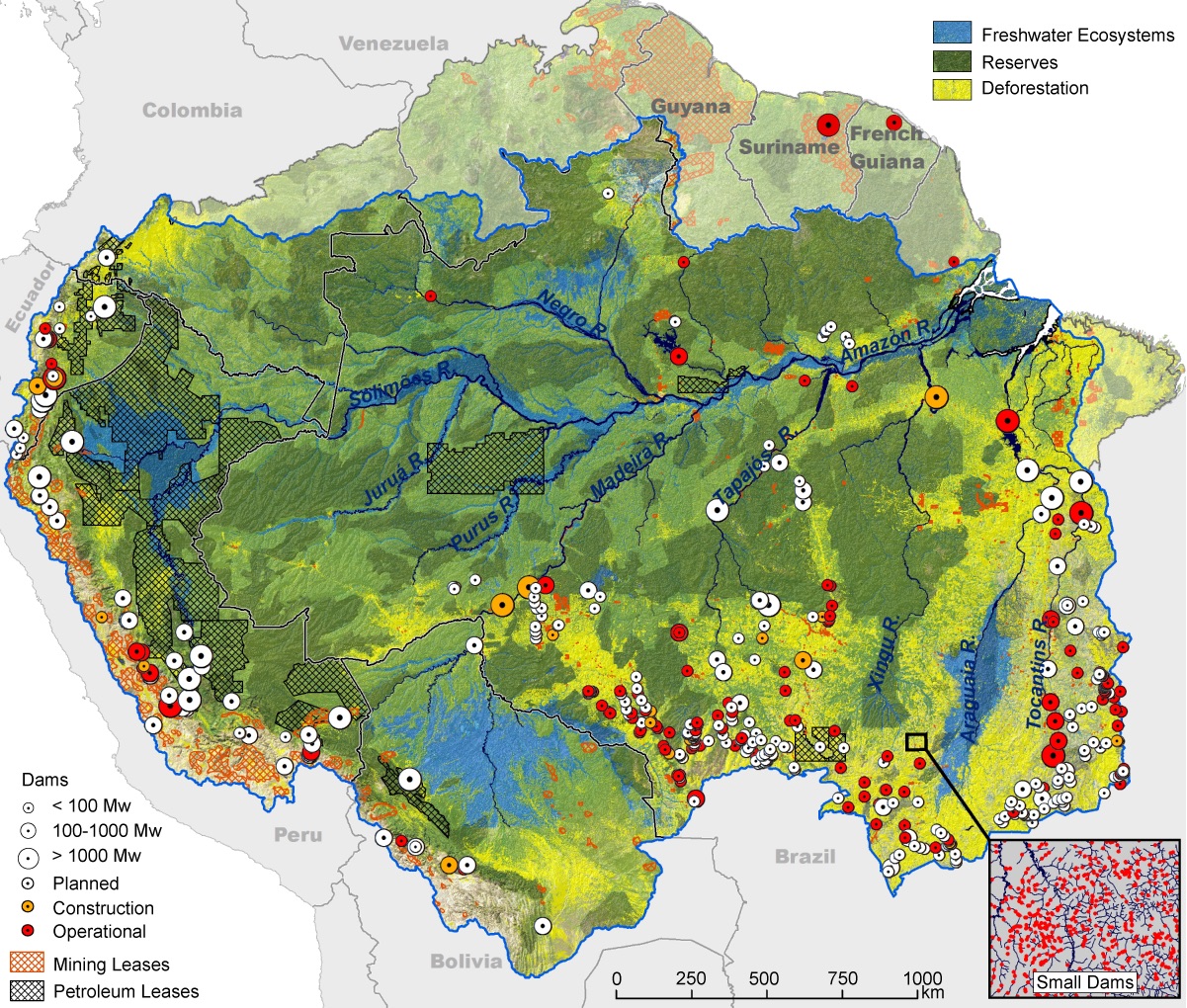
There are 155 large there will be only three free-flowing tributaries if all 277 planned dams for the Basin are built. Land-cover changes driven by mining, dam and road construction, and agriculture and cattle ranching have already affected ~20% of the Basin and up to ~50% of riparian forests in some regions. Global climate change will likely exacerbate these impacts by creating warmer and dryer conditions, with less predictable rainfall and more extreme events (e.g. droughts and floods).
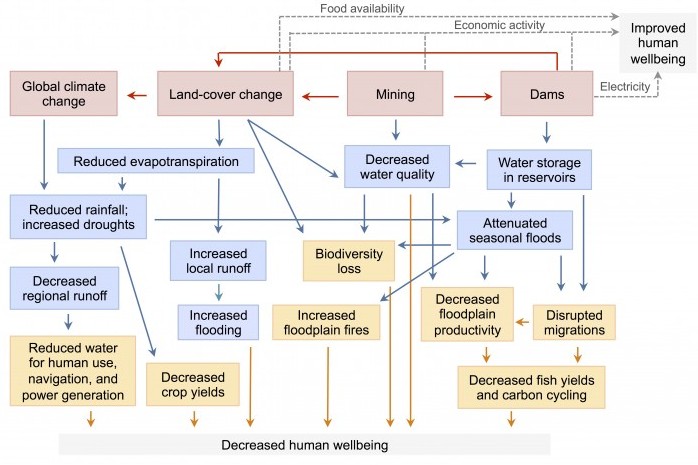
The resulting hydrological alterations are rapidly degrading freshwater ecosystems both independently and via complex feedbacks and synergistic interactions. The ecosystem impacts include biodiversity loss, warmer stream temperatures, stronger and more frequent floodplain fires, and changes to biogeochemical cycles, transport of organic and inorganic materials, and freshwater community structure and function. The impacts also include reductions in water quality, fish yields, and availability of water for navigation, power generation, and human use.
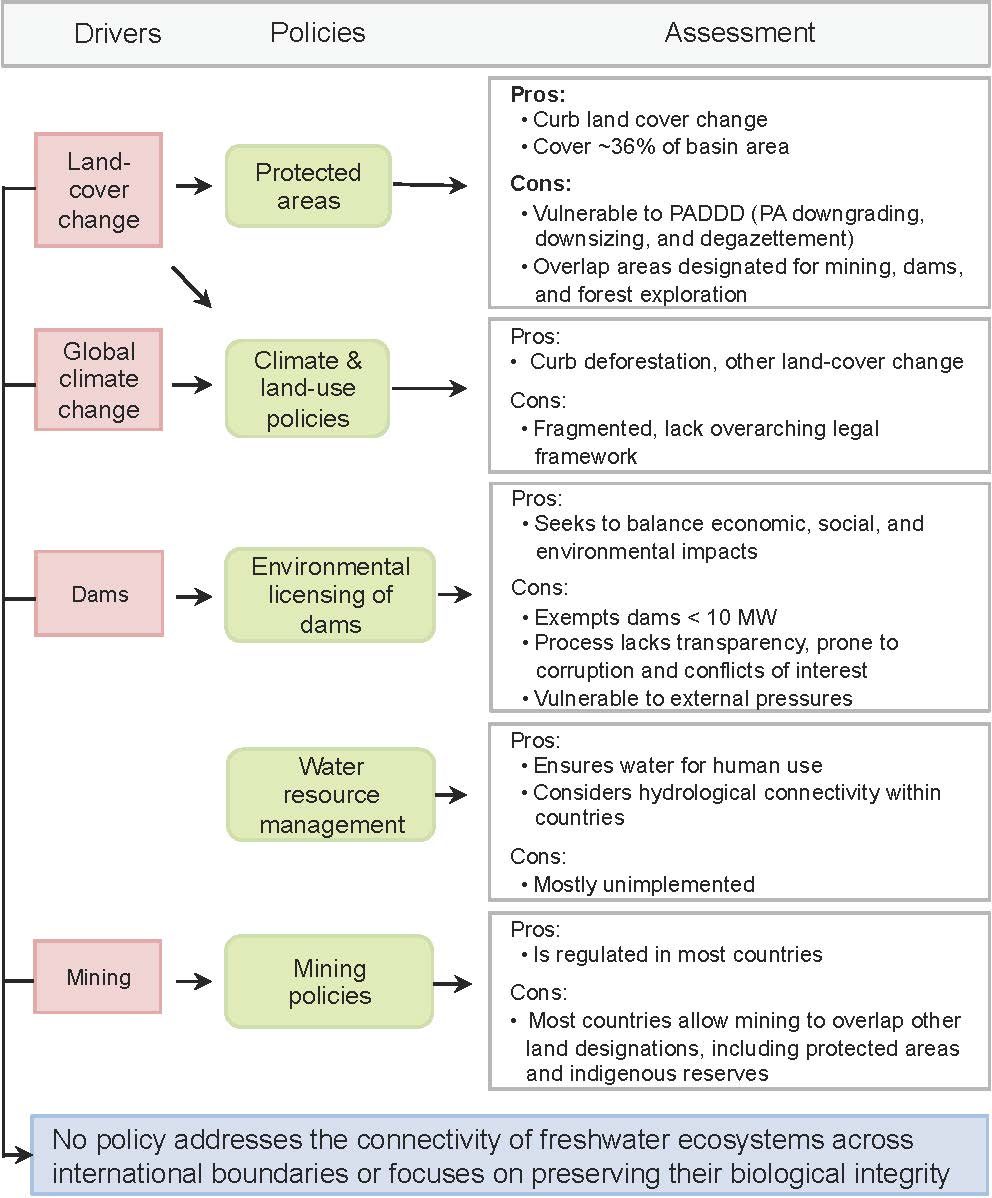
This degradation of Amazonian freshwater ecosystems cannot be curbed presently because existing policies are inconsistent across the Basin, ignore cumulative effects, and do not consider the hydrological connectivity of freshwater ecosystems. Maintaining the integrity of these freshwater ecosystems requires a basin-wide research and policy framework to understand and manage hydrological connectivity across multiple spatial scales and jurisdictional boundaries.
More information:
Castello, L., Macedo, M.N. 2016. Large-scale degradation of Amazonian freshwater ecosystems. Global Change Biology. doi: 10.1111/gcb.13173 pdf
NEW GRADUATE COURSE
NEW GRADUATE COURSE FOR SPRING 2015
FIW 5984 : Systems Conservation of Animal Populations
This course adopts an integrative approach to understanding problems of sustainable management and conservation of animals in natural landscapes. The course is founded on the idea that effective conservation of animal populations can only be achieved through consideration and management of broader, multifaceted factors related to natural ecosystems and human societies. The course seeks to help students conceptualize and articulate their own problems of study within an interdisciplinary framework.
The course introduces students to approaches to understanding biological conservation problems as integrated systems by reviewing the literature of Systems Ecology and Social-Ecological Systems. It reviews key concepts and papers on ecosystem-based management, resource economics, user participation, policy, and governance. Attention is paid to the diversity of social-ecological settings across the globe and the role of rural communities in animal management and conservation. The course concludes with presentations and discussions led by the students of research projects analyzing animal conservations problems from a systems perspective.
Classes are based on discussions of readings led jointly by students and instructor.
See attached file for more details, or contact
Leandro Castello (leandro@vt.edu)
148 Cheatham Hall
Phone: 540-231-5046

